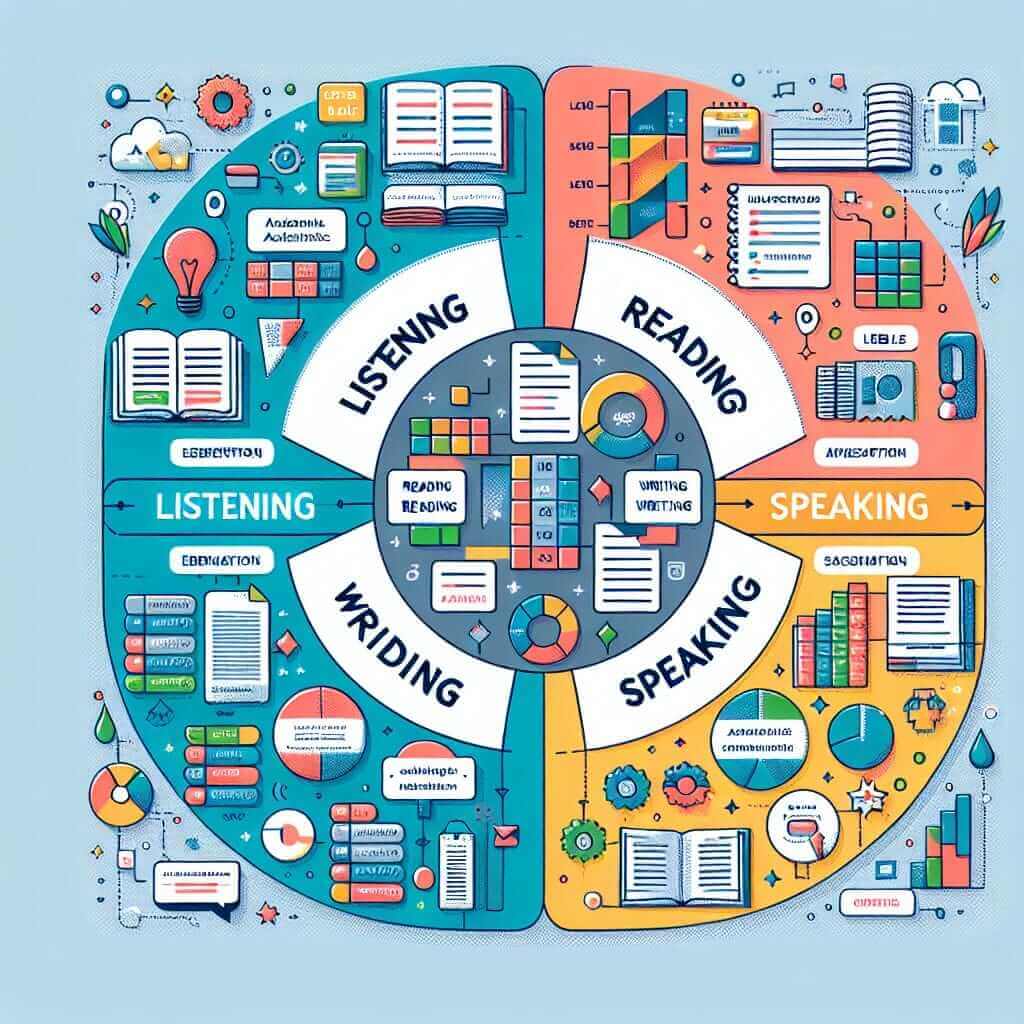For those embarking on the journey of higher education or professional registration in an English-speaking environment, understanding the IELTS Academic test is paramount. This comprehensive guide will delve into the specifics of the IELTS Academic, providing clarity on its structure, content, and significance.
Unpacking the IELTS Academic
The IELTS Academic is a standardized test designed to assess the English language proficiency of individuals who aspire to study at the undergraduate or postgraduate level or seek professional registration in a country where English is the primary language of communication. It is widely recognized by universities, colleges, and professional bodies in countries such as the UK, Australia, Canada, New Zealand, and the USA, among others.
Structure of the IELTS Academic Test
The IELTS Academic test comprises four modules: Listening, Reading, Writing, and Speaking.
Listening:
- Duration: 30 minutes (plus 10 minutes for transferring answers)
- Format: 4 sections, each with 10 questions, featuring a variety of question types such as multiple choice, sentence completion, and diagram labeling.
- Content: Conversations and monologues in an academic context.
Reading:
- Duration: 60 minutes
- Format: 3 long reading passages with 13-14 questions each, encompassing various question types like multiple choice, identifying information, and matching headings.
- Content: Articles, extracts from books, journals, and newspapers, often related to academic topics.
Writing:
- Duration: 60 minutes
- Format: 2 tasks – Task 1 (150 words minimum) involves describing, summarizing, or explaining visual information presented in a graph, chart, table, or diagram; Task 2 (250 words minimum) requires writing an essay in response to a given point of view, argument, or problem.
Speaking:
- Duration: 11-14 minutes
- Format: A face-to-face interview with a certified examiner, divided into three parts: introduction and interview, individual long turn, and a discussion.

Scoring and Results
Each of the four modules is graded on a band score from 0 to 9, with 9 being the highest level of proficiency. The overall band score is calculated by averaging the scores of the four individual modules.
Why is the IELTS Academic Important?
The IELTS Academic test serves as a crucial gateway for individuals seeking academic and professional opportunities in English-speaking environments. Here’s why:
- University Admissions: A high IELTS score demonstrates your English language proficiency, a key requirement for admission into universities and colleges.
- Professional Registration: Many professional bodies require an IELTS score as proof of English language competency, particularly in fields like healthcare, engineering, and law.
- Visa Applications: IELTS scores are often a prerequisite for obtaining student visas or work permits in various countries.
- Personal Development: Preparing for the IELTS Academic can significantly enhance your overall English language skills, benefiting your communication abilities in various aspects of life.
Tips for IELTS Academic Success
Achieving a desirable score on the IELTS Academic requires dedicated preparation and effective strategies. Here are some tips:
- Familiarize Yourself with the Test Format: Understanding the structure, timings, and question types of each module is crucial.
- Practice Regularly: Engage in consistent practice tests to build your stamina, improve your time management skills, and identify areas that require further attention.
- Expand Your Vocabulary: A rich vocabulary is essential for achieving a high score, particularly in the reading and writing modules. Make a habit of learning new words regularly.
- Enhance Your Grammar Skills: Pay close attention to grammatical accuracy, as it carries significant weight in the writing and speaking modules.
- Develop Effective Test-Taking Strategies: Learn and implement strategies specific to each module, such as skimming and scanning in reading, note-taking in listening, and structuring your essays effectively in writing.
- Seek Professional Guidance: Consider enrolling in an IELTS preparation course or working with a qualified tutor to receive personalized feedback and guidance.
Conclusion
The IELTS Academic test is a significant step for individuals seeking to pursue higher education or professional registration in an English-speaking environment. By understanding the test format, practicing regularly, and implementing effective strategies, you can enhance your chances of achieving a successful outcome.